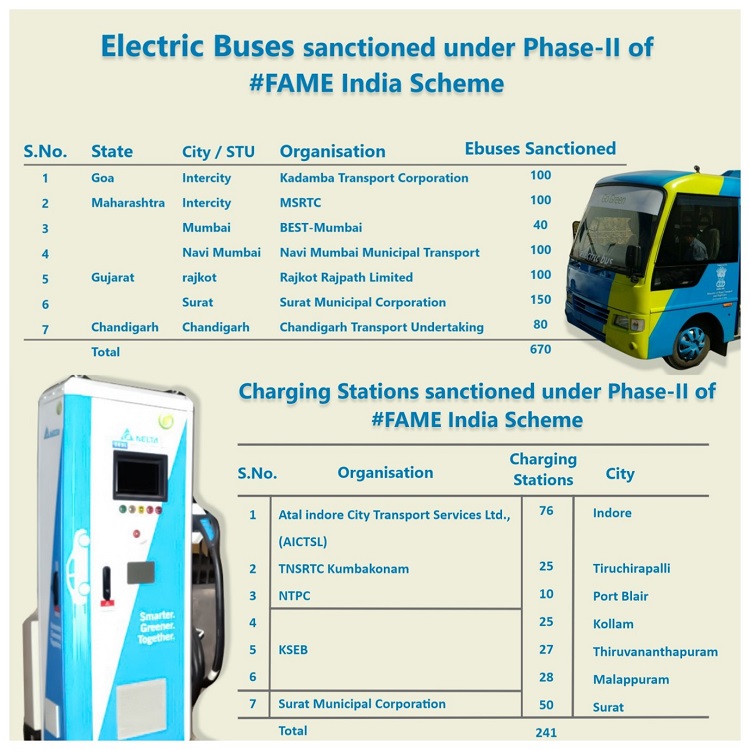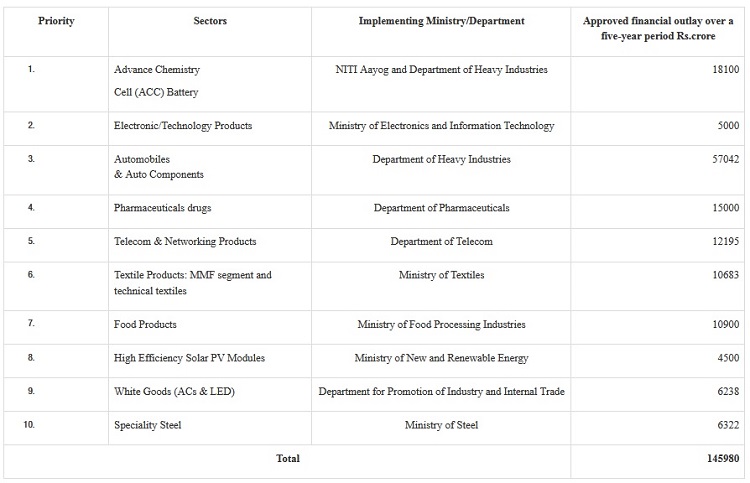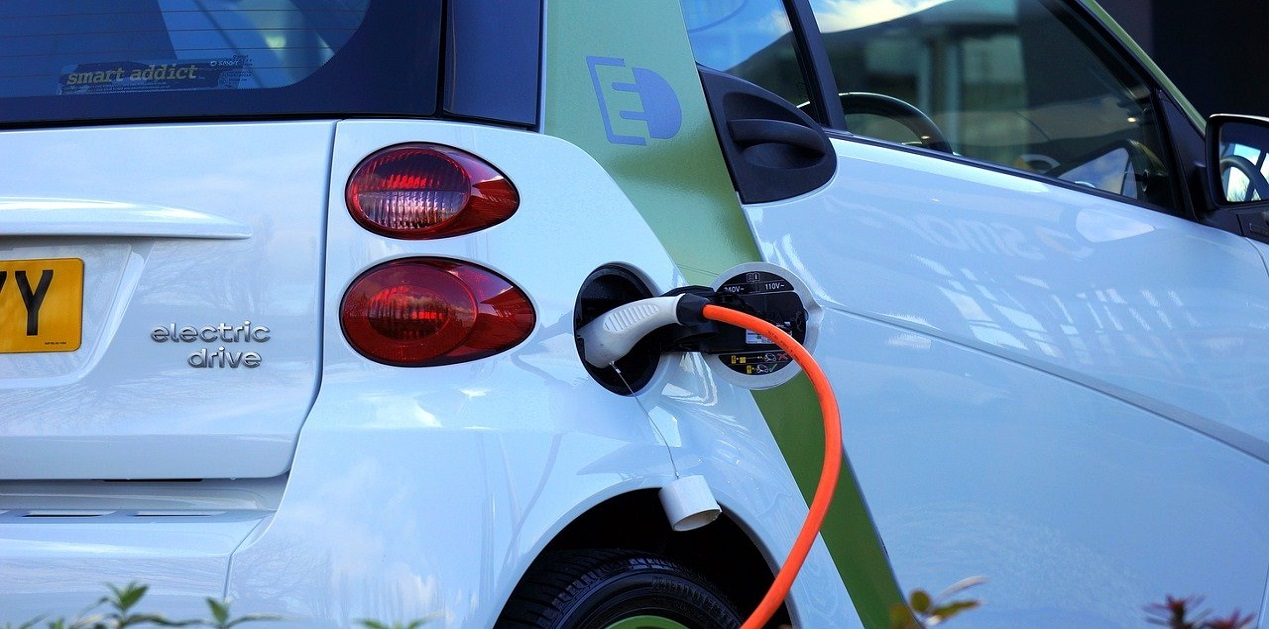The lockdown period to curtail the spread of COVID-19 in India saw pollution levels dropping to the lowest levels since 2018. No economic activity from March 15-April 30 led to a reduction of 15 per cent in Nitrogen Dioxide (NO2) levels compared to 2019. As the Ministry of Home Affairs allowed the economy to open up on a stage-by-stage basis, the state governments in India and the Centre have formulated new policies to push for Electric Vehicles at a larger scale, helping India reach its target as set in the Paris Climate Accords.
India is the only G-20 nation on track to achieve renewable energy targets under the 2 Degree Celsius warming future, especially compared to the top three emitters U.S, China, and the EU. Although no country has a renewable energy target set for the 1.5 Degrees Celsius warming future, India’s initiatives serve as a prime example for the world's major economies to follow suit.1 The article will explore India's central and state policies in Electric Vehicles and the related infrastructure.
Centre’s Policies
As the unlock procedures were put in place, the Modi government has initiated more policies to promote the sale of EVs in India. The Government of India aims to create an ecosystem that will help upscale electric mobility, help the broader national agenda, and reduce pollution and the oil import bill. In August 2020, the Ministry of Road and Highways allowed the sale of EVs without batteries. The move would benefit customers as they would like to spend less money while buying and later invest in EV batteries for a greener environment. It also encourages the battery swapping (EV) infrastructure.2 Criticism levied against this policy is from the automobile industry, which fears that they might lose out on subsidies as provided under the Faster Adoption and Manufacturing of Hybrid and Electric Vehicles (FAME) II scheme.3
Around a month later, in September 2020, the Ministry of Heavy Industries and Heavy Equipment sanctioned 670 new electric buses and 241 charging stations under the FAME II scheme. The FAME II scheme, which is applicable for three years (started from April 1, 2019), plans to support the electrification of shared and private transportation by providing subsidies for 7000 e-buses, 10 lakh e-2 wheelers, 50,000 e-4 wheelers, and five lakh e-3 wheelers. The Centre has earmarked Rs. 10,000 Crores to promote electrification of vehicles as well as creating charging stations.4

The Production Linked Incentive (PLI) scheme, which has been now expanded to ten different sectors, also includes battery manufacturing. The Finance Ministry has set aside above Rs. 18,000 crores for the same. Advanced Chemistry Cell (ACC) battery manufacturing is one of 21st Century’s prime economic opportunities. PLI in this sector would help scale manufacturing for consumer electronics, renewable energy, and electric vehicles. Domestic industry leaders believe that the scheme would help roll out large electronics manufacturing system, benefiting all industries.5 It is a big step towards achieving the Prime Minister’s Modi for India to become self-reliant (Atmanirbhar). The vision is not just to encourage domestic industries in India to step up, but for foreign investors and manufacturers to see India as a part of a sustainable global supply chain that is now in expansion mode due to overdependence on China.6

State Policies
Telangana
Telangana’s EV policy focuses on exemption of road tax and registration fee. The incentives provided by the state government are Rs.825.45 Crores, and the land required for the infrastructure is 775 acres. The benefits of EV policy for the end consumer in Telangana would be savings on maintenance and running costs for 15 years, which is pegged at Rs. 22,588 Crore. The exemptions are predicted to help reduce CO2 by 6.61 Terra Grams (661 crore Kg). The estimated investments in the state are Rs—30,000 crores, which would create 1.2 Lakh jobs.7
The policy also calls for developing Telangana as a global center for research and development of battery technologies, electric vehicles, and connected/autonomous vehicles. State entities and private players would be involved in setting up fast chargers across all major cities and towns, starting with Hyderabad. The policy has also led to important Memorandum of Understanding (MoU’s) with various domestic and international private players of the EV sector (three and two-wheelers) to invest in the state and manufacture there, which is in line with the self-reliance path that India has set out on, especially in new technology.8
Andhra Pradesh
Meanwhile, the Andhra Pradesh Government has plans laid out for EV infrastructure to layout more charging stations for public consumption. To encourage the shift to EV’s, the state government plans to set up charging establishments every 25 kilometers on national highways. The charging stations would be available at 83 locations under the FAME II scheme. To instill confidence in the public, the state government has deployed 300 electric cars in various government departments. The state government has also nominated the Non-conventional Energy Development Corporation of Andhra Pradesh Limited (NREDCAP) as the state nodal agency to set upcharging stations. NREDCAP has signed MoU’s with Rajasthan Electronics and Instruments Limited and the National Thermal Power Corporation (NTPC) to raise the charging stations.9
Gujarat
In Gujarat, the EV policy focuses on subsidy on EV’s in the state. By the end of 2020-21, the Gujarat government aims to see 10,000 two-wheelers and 5,000 three-wheelers in the state with the belief that this will help reducing pollution caused by vehicles that use conventional fuel. Subsidies for the use of EV are quite extensive. Students studying in high school and college would be given Rs. 12, 000 to use battery-operated two-wheeler vehicles. Further on, Rs. 48,000 subsidy would be provided to individuals who want to buy e- three-wheelers. Rs 50 Lakhs has been allotted to create the necessary infrastructure to charge e-vehicles in the state.10
Tamil Nadu
Tamil Nadu is one of the few states taking a substantial lead in EVs, especially when it is one of India's major automotive hubs along with Delhi-NCR, Karnataka, Maharashtra, and other states. The EV policy gives incentives to the demand and supply side and is looking to attract Rs 50,000 crores in investments and create around 1,50,000 jobs. There is also two-year road tax exemption for those who want to buy a new e-vehicle. The policy also gives companies incentives to make charging stations, electric motors, battery management, and EV powertrains.11
Delhi
The industry has hailed Delhi’s EV policy as one of the best in the country. According to the industry, the EV policy helps the end consumers as it gives additional subsidies while buying EVs, making even high-performance ones affordable. The policy aims to have 25 per cent of the traffic in Delhi to be electric compared to 0.29 per cent now by 2024. The policy considers different automobile models, the scrappage of old internal combustion engine, and charging infrastructure.12
Conclusion
India’s push to EV is set to be higher in the coming years, with the Centre and the state cooperating. Higher fuel prices due to the unpredictable nature of the situation in the middle-east, increased taxes on traditional fuels as well as investments in renewable sources of energy is driving India’s transportation future on the roads to be electric. Heavy investments from private players inside and outside India would help research and develop new technologies while bolstering India’s automobile and auto-component manufacturing sector. The cumulative PLI of manufacturing ACC batteries and auto-manufacturing and auto-components manufacturing is around Rs.76,000 crores.
As India goes on the path of achieving self-reliance, economic growth has to be sustainable, especially as climate change is one of India's foremost national security threats due to high air, water, and sound pollution. The Centre and the state's initiatives indicate India’s dedication and vigour to achieve its international commitments and do its part. On the world stage, economic lockdowns and international flights have led to CO2 emissions reducing drastically. However, monetary and fiscal stimulus to restart economies will not sustain the reduction of harmful pollutants as a significant proportion of the stimulus is going to fossil-fuel run industries.
The Centre’s push and the states' EV policies have charted a future path where electricity generation in India might shift heavily towards renewables due to lower prices. The Indian Government is also pushing forward for convergence parks (Wind-Solar parks) as 19 areas over seven states have been identified, which will potentially generate 54,000 Mega Watt (MW). The states' EV policies are also aiming for what is being termed as a “new normal,” wherein there will be a gradual reduction of vehicles using traditional fuels towards clean sources. To achieve sustainable healthy air quality levels, electricity generation has to be from cleaner sources of energy.
References
- Mohan, Vishwa. "Paris Climate Agreement: India Only G20 Nation on Track to Meet Paris Pact's 2°C Goal: - Times of India." The Times of India. November 19, 2020. https://timesofindia.indiatimes.com/home/environment/global-warming/india-only-g20-nation-on-track-to-meet-paris-pacts-2c-goal/articleshow/79292694.cms#:~:text=Paris Climate Agreement: India only,pact's 2°C goal.
- Verma, Ayush. "Government Allows Sale and Registration of EVs Without Batteries." Saur Energy International. August 14, 2020. https://www.saurenergy.com/ev-storage/government-allows-sale-and-registration-of-evs-without-batteries.
- Chaliawala, Nehal. "Government Allows Sale of Electric Vehicles without Batteries, Leaves Manufacturers Puzzled." The Economic Times. August 12, 2020. https://economictimes.indiatimes.com/industry/auto/auto-news/government-allows-sale-of-electric-vehicles-without-batteries-leaves-manufacturers-puzzled/articleshow/77509605.cms?from=mdr.
- "670 New Electric Buses and 241 Charging Stations Sanctioned under FAME Scheme." Press Information Bureau. September 25, 2020. https://pib.gov.in/PressReleasePage.aspx?PRID=1658900.
- "Government Approves Rs 1.46 Lakh Crore PLI Scheme For 10 Sectors; Here Are The Details." Moneycontrol. https://www.moneycontrol.com/news/business/economy/cabinet-approves-extension-of-pli-scheme-to-10-sectors-rs-1-46-lakh-crore-to-be-allocated-6104211.html#:~:text=The Union Cabinet approved the, white goods,%.
- Das, Goutam. "PLI Will Move Wheels of Electronics Mfg: Rai." Mint. November 02, 2020. https://www.livemint.com/companies/people/pli-will-move-wheels-of-electronics-mfg-rai-11604283853284.html.
- "Electric Vehicles to Get Cheaper in Telangana as Road Tax, Registration Fee Exempted." The New Indian Express. August 06, 2020. https://www.newindianexpress.com/states/telangana/2020/aug/06/electric-vehicles-to-get-cheaper-in-telangana-as-road-tax-registration-fee-exempted-2179783.html.
- Singh, Charanpreet. "Telangana EV Policy 2020: Government Announces 100% Exemption On Road Tax & Registration Fee On Electric Vehicles." Carandbike. October 31, 2020. https://www.carandbike.com/news/telangana-ev-policy-2020-government-announces-100-exemption-on-road-tax-registration-fee-on-electric-vehicles-2318466.
- "400 Electric Vehicles Charging Stations to Come up across Andhra Pradesh: Visakhapatnam News - Times of India." The Times of India. November 04, 2020. https://timesofindia.indiatimes.com/city/visakhapatnam/400-ev-charging-stns-to-come-up-across-ap/articleshow/79027441.cms.
- "Gujarat Government Announces Subsidy for Electric Vehicles." Saur Energy International. September 18, 2020. https://www.saurenergy.com/solar-energy-news/gujarat-government-announces-subsidy-for-electric-vehicles#:~:text=As per the report by,of Rs 48,000 per v.
- Narasimhan, T. E. "Tamil Nadu Grants 100% Vehicle Tax Waiver to EVs, Plans Dedicated Park." Business Standard. November 02, 2020. https://www.business-standard.com/article/economy-policy/tamil-nadu-grants-100-vehicle-tax-waiver-to-evs-plans-dedicated-park-120110201467_1.html.
- "Delhi Electric Vehicle Policy: What EV Makers Said on the New Initiative." Hindustan Times Auto News. August 08, 2020. https://auto.hindustantimes.com/auto/news/delhi-electric-vehicle-policy-what-ev-makers-said-on-the-new-initiative-41596859237811.html.
(The paper is the author’s individual scholastic articulation. The author certifies that the article/paper is original in content, unpublished and it has not been submitted for publication/web upload elsewhere, and that the facts and figures quoted are duly referenced, as needed, and are believed to be correct). (The paper does not necessarily represent the organisational stance... More >>
Image Source: https://pixabay.com/photos/electric-car-car-electric-vehicle-1458836/











Post new comment